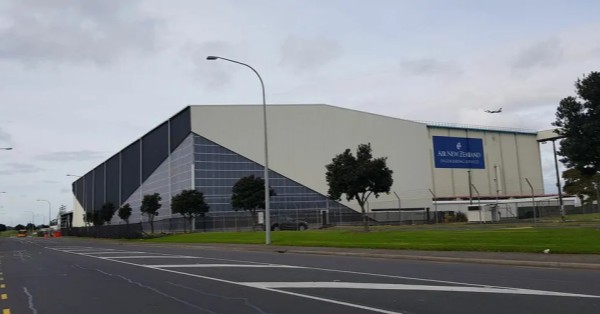The future of aviation is landing at YYC Calgary International Airport, thanks to a 5G private wireless network deployed by TELUS. This 10-year partnership will set a new benchmark for digital aviation infrastructure in Canada. The private network promises ultra-fast, low-latency connectivity, improving operations and passenger experiences while enabling future innovations.
Connectivity Challenges in Modern Airports: Why 5G is the Solution
Airports rely heavily on seamless connectivity to manage operations, security, logistics, and passenger services. However, traditional Wi-Fi and fixed connections often fall short due to:
- Network congestion, especially in high-traffic areas.
- Security vulnerabilities in public Wi-Fi networks.
- Limited coverage, making it difficult to connect critical areas like tarmacs and baggage handling zones.
- Scalability issues, restricting future IoT and automation integration.
TELUS 5G Private Network: Enhancing Airport Efficiency & Security
TELUS, a leader in private networks, is addressing these challenges by deploying an enterprise-grade 5G private wireless network across YYC. This cutting-edge network will:
- Deliver uninterrupted, high-speed connectivity for airport staff, airlines, and passengers.
- Enhance security with private, encrypted network access.
- Improve operational efficiency, enabling real-time IoT-based monitoring for baggage handling, maintenance, and security systems.
- Lay the foundation for future technologies, including AI-driven airport automation, smart sensors, and autonomous vehicle operations.
How Private 5G is Driving Innovation at YYC Calgary Airport
Megan Gupton, Chief Information Officer at YYC Calgary Airport Authority, highlighted the necessity of this next-generation infrastructure, stating:
“Fixed connections and Wi-Fi alone won’t be enough. The latest generation of private 5G networks is necessary to unlock greater productivity, resilience, and sustainability.”
TELUS is leveraging its extensive airport infrastructure to enhance coverage both inside and outside the terminal, ensuring comprehensive wireless access across the airport campus.
Why TELUS Chose Private 5G for YYC’s Smart Airport Transformation
TELUS is implementing a 5G private network due to its low-latency, high-speed, and secure capabilities. Key technologies include:
- 5G-enabled IoT solutions for real-time tracking of baggage and cargo.
- Network slicing to allocate bandwidth dynamically for different airport operations.
- Edge computing to process data closer to the source, reducing delays in critical systems.
5G-Powered Airports: Improved Operations, Security & Passenger Experience
- Passenger Experience: Faster check-ins, real-time flight updates, and seamless in-terminal connectivity.
- Operational Efficiency: Automated logistics, improved baggage handling, and streamlined security processes.
- Scalability: The network is future-proofed to support next-gen innovations, from AI-powered monitoring to autonomous airport vehicles.
- Security: A private wireless network enhances cybersecurity by reducing exposure to public network threats.
The Future of Air Travel: How Private 5G is Shaping Smart Airports
The aviation sector is undergoing rapid digital transformation, and YYC’s adoption of private 5G sets a precedent for other airports worldwide. This deployment accelerates the transition toward smart airports, making air travel more efficient and secure.
TELUS Leads Canada’s 5G in Aviation Infrastructure
TELUS is a leading force in private wireless network deployments across Canada. By partnering with YYC, TELUS is showcasing its ability to support large-scale digital transformation in critical infrastructure sectors.
Key Players Driving YYC Calgary Airport’s 5G Deployment
- YYC Calgary Airport Authority: Integrating the network into airport operations and ensuring regulatory compliance.
- Technology vendors: Providing 5G equipment and edge computing solutions.
- Airlines & Logistics Providers: Utilizing the network for real-time tracking and automation.
TELUS & YYC 5G Rollout: Key Milestones & Future Expansion
- Deployment Phases: The 5G private network will be rolled out in phases, with initial operations starting on May 1, 2025.
- Full Implementation: Over the next 10 years, the network will expand to incorporate new technologies and enhanced digital services.
Expert Insights: The Impact of Private 5G on Air Travel
Navin Arora, Executive Vice President at TELUS, emphasized: “By implementing the country’s first airport-wide private wireless network, we’re creating a platform for continuous innovation that will elevate the travel experience and operational efficiency for years to come.”
This partnership not only modernizes YYC but also positions Canada at the forefront of aviation innovation.
YYC’s 5G Transformation: A New Era of Smart Aviation
YYC’s private 5G network with TELUS is more than just an infrastructure upgrade—it’s a strategic leap into the future of air travel. As smart airports become the standard, this initiative paves the way for enhanced security, automation, and seamless connectivity, making Canada a global leader in digital aviation.






























